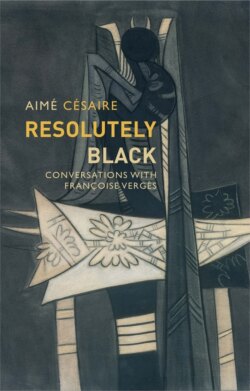Resolutely Black

Реклама. ООО «ЛитРес», ИНН: 7719571260.
Оглавление
Aimé Césaire. Resolutely Black
Contents
Guide
Pages
Series title. Critical South
Resolutely Black. Conversations with Françoise Vergès
Copyright page
Note on the Translation
Notes
Preface By Françoise Vergès
Notes
Conversations
Notes
Postface by Françoise Vergès
Césaire and Slavery
Césaire and Colonialism
Césaire’s Relevance Today
Notes
Works by Aimé Césaire in English
POLITY END USER LICENSE AGREEMENT
Отрывок из книги
The publication of this series was made possible with the support of the Andrew W. Mellon Foundation
Translated by Matthew B. Smith
.....
Once synonymous with “slave,” the term nègre prevents one from forgetting the irreparable damage caused by slavery and colonialism. Its range of meaning – from offensive slur to a self-affirming designator – knows no exact equivalent in English. Throughout the history of its use, it aligns with a different set of English terms depending on the period in question. Brent Hayes Edwards suggests that during the interwar period, when Césaire adopted the term, though its function was similar to the “n-word” in English, it was more closely aligned with “black,” which was also a derogatory term in the 1920s, whereas “Negro,” written with a capital N in the manner of W. E. B. Du Bois, corresponded at that time more to the French term Noir. Of course, these are all rough and fleeting correspondences that would continue to shift over the ensuing decades. For a while, nègre was most frequently translated as “negro”; now it isn’t uncommon to translate it as “black”. It goes without saying that neither of these can account for the historical shifts in its meaning.
Thus, any attempt to translate Césaire’s use of nègre in 2004 would remain approximate, if not misleading. For this reason, I have decided against seeking a single linguistic match for it. At times, I have left it untranslated when I believe it speaks for itself. At others, I offered what I felt was an appropriate translation for a given context while providing the original in square brackets. My hope is that this will allow the reader to gain a sense of the nuance and range of the term as used by Césaire while serving as a reminder of the plurality of black experience and of the history of slavery and colonialism.
.....